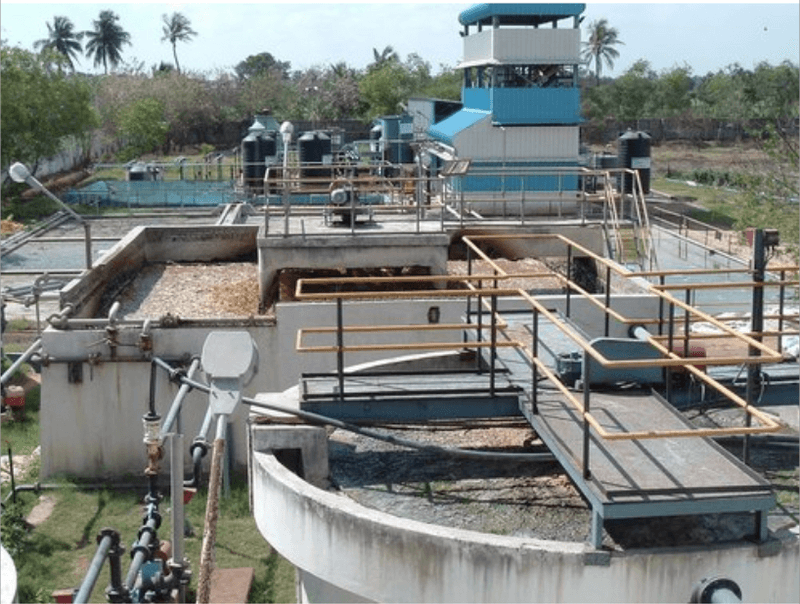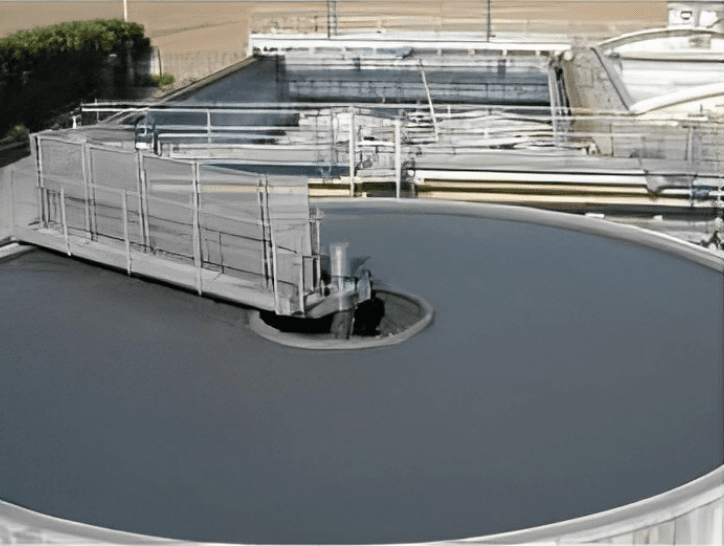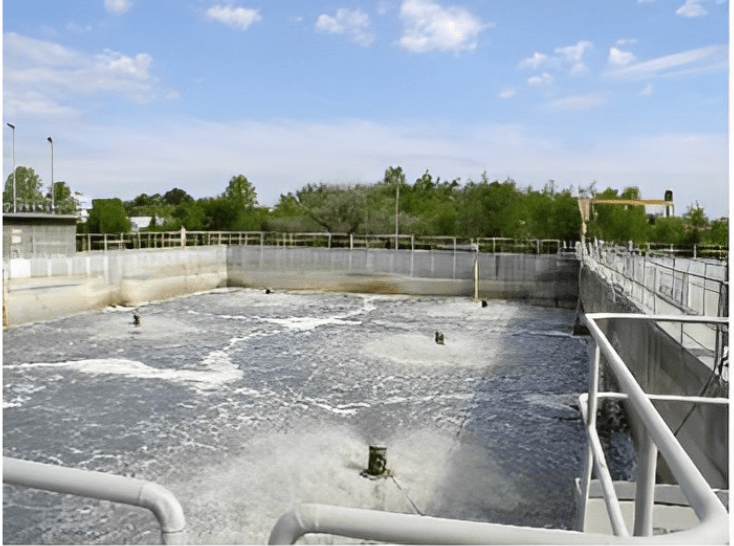Revolutionising Wastewater Management in the Chemical Industry: Towards a Greener Future
The chemical industry, a vital backbone of the global economy, is instrumental in producing a vast array of products that fuel sectors such as pharmaceuticals, agriculture, construction, and more. However, the flip side of this productivity is the generation of wastewater containing a myriad of harmful contaminants, including organic compounds, heavy metals, and various pollutants. These substances pose significant risks to both aquatic ecosystems and human health, making the treatment of chemical industry wastewater not just a regulatory requirement but a moral imperative.

Unraveling the Complexity of Chemical Wastewater Treatment
The Multifaceted Challenge
Chemical industry effluents are markedly different from domestic wastewater, characterized by their complex mixture of contaminants. These can range from volatile organic compounds and persistent heavy metals to synthetic dyes and solvents. The variability in pollutant concentrations, depending on production schedules and processes, adds another layer of complexity to treatment efforts. Moreover, the inherent toxicity of certain chemicals can severely impact the efficacy of conventional biological treatment methods, necessitating innovative approaches to ensure effective treatment.
Innovations and Solutions for a Cleaner Tomorrow: Enhancing Chemical Wastewater Treatment
Advanced Pre-treatment Strategies: Setting the Stage for Success
The journey towards effective wastewater treatment begins with a comprehensive pre-treatment phase. This crucial first step employs state-of-the-art techniques to meticulously remove large particulate matter, which could otherwise hinder subsequent treatment processes. Moreover, adjusting the effluent's pH is vital for creating an optimal environment that enhances the efficiency of the treatment stages that follow. This phase lays the groundwork for a smoother, more efficient treatment process, ensuring that the more sophisticated treatment methods downstream can operate at their maximum potential.
Cutting-edge Chemical Treatment Methods: The Core of Contaminant Reduction
Chemical Precipitation and Oxidation: These cornerstone processes are instrumental in the initial reduction of the pollutant load. By introducing specific chemicals into the wastewater, hazardous substances are transformed into inert solids or converted into less harmful compounds. This conversion facilitates the easy separation of these substances from the water, significantly diminishing the overall pollutant concentration.
Advanced Oxidation Processes (AOPs): AOPs are at the cutting edge of chemical treatment, harnessing the power of highly reactive species to dismantle complex and stubborn pollutants. This innovative approach effectively breaks down a wide range of contaminants into harmless byproducts, such as water and carbon dioxide, showcasing the prowess of modern chemistry in tackling pollution at the molecular level.
Biological Treatment Innovations: Leveraging Biotechnological Advances
The presence of toxic compounds in wastewater has traditionally posed a significant challenge to biological treatment methods. However, recent advancements in biotechnology have led to the emergence of highly resilient microorganisms, specifically engineered or naturally adapted to decompose even the most recalcitrant pollutants. Through the use of specialized biofilm reactors and genetically modified bacteria, these biological treatment systems offer a green and sustainable pathway for substantially reducing the organic load and neutralizing toxic elements in the wastewater.
Membrane Technology and Resource Recovery: Pioneering Purification and Sustainability
The remarkable capacity of membrane filtration methods, such as the complex procedures of reverse osmosis and nanofiltration, to purify wastewater makes them stand out. These techniques are excellent at eliminating a wide range of dissolved impurities, opening the door for treated water to be reused in numerous applications. The focus on resource recovery signals a substantial move away from purification and toward sustainable wastewater management. Modern treatment techniques seek to recover valuable materials from the effluent in addition to purifying the water. This strategy is in line with the circular economy's tenets, which view waste as a resource that can be used to create a more sustainable and profitable treatment paradigm.

Sustainability at the Heart of Wastewater Management
Proactively Reducing Environmental Impact
The journey towards sustainable wastewater management is rooted in the proactive reduction of environmental impact right from the source of waste production. Industries are adopting strategies to diminish the volume and harmfulness of their wastewater output significantly. This forward-thinking approach necessitates a thorough reevaluation and modification of production processes to prioritize the use of safer materials and bolster the recycling of waste. Implementing such measures lightens the burden on natural ecosystems and eases the demands placed on wastewater treatment infrastructure, fostering a more environmentally responsible industrial paradigm.
Switching to Safer Alternatives: A crucial move in lessening environmental footprints is the shift from using hazardous or persistent materials to more benign options. This strategic substitution markedly lowers the generation of hazardous waste.
Refining Production Efficiency: Enhancing process efficiency can lead to a notable reduction in waste production. Employing integrated process strategies and recycling within the production cycle greatly minimizes waste outputs.
Water Conservation and Reuse: Addressing Global Water Challenges
Given the critical issue of water scarcity, conserving water and promoting its reuse have become essential across all sectors, including the chemical industry. The adoption of sophisticated treatment technologies enables the recycling of wastewater, significantly cutting down on the need for freshwater resources. This approach not only helps in conserving valuable water reserves but also minimizes the ecological impact stemming from wastewater disposal.
Advancing Water Reuse: By leveraging membrane technologies and advanced oxidation, treated wastewater can achieve the quality necessary for reuse in industrial or agricultural settings, encouraging a sustainable cycle of water usage.

Policy Compliance: Steering Towards a Healthier Environment
Meeting strict environmental regulations is a cornerstone of sustainable wastewater management, transcending mere legal obligation. These regulations act as catalysts, propelling industries toward the adoption of cutting-edge treatment solutions and best practices that safeguard ecosystems and public health. Setting ambitious wastewater quality standards motivates progress and innovation in treatment methodologies, guiding industries on a path to more eco-friendly operations.
Embracing Cutting-edge Treatment Solutions: Regulatory mandates often require the deployment of the best available technologies (BAT), which are characterized by their exceptional treatment efficacy and ability to minimize pollutants.
Pursuing Continuous Enhancement: Industries are motivated to not just meet regulatory standards but to persistently evaluate and enhance their wastewater management strategies. This ongoing quest for improvement ensures that industries stay aligned with the latest in sustainable treatment technologies and practices, ready to tackle emerging environmental challenges.
Leading the Way to Environmental Sustainability
To route the path to sustainable wastewater management within the chemical industry presents a challenging yet essential undertaking. Through the adoption of cutting-edge treatment methods, a commitment to reducing waste at the source, and a focus on reclaiming resources, the sector can significantly lower its ecological footprint. This holistic strategy not only tackles the pressing issue of contaminant elimination but also harmonizes with overarching objectives of sustainability, setting the stage for a more eco-friendly future. Moving forward, the fusion of innovative practices, technological advancements, and dedication to environmental care will be crucial in transforming wastewater management practices, thereby safeguarding the health of our planet and the prosperity of coming generations.